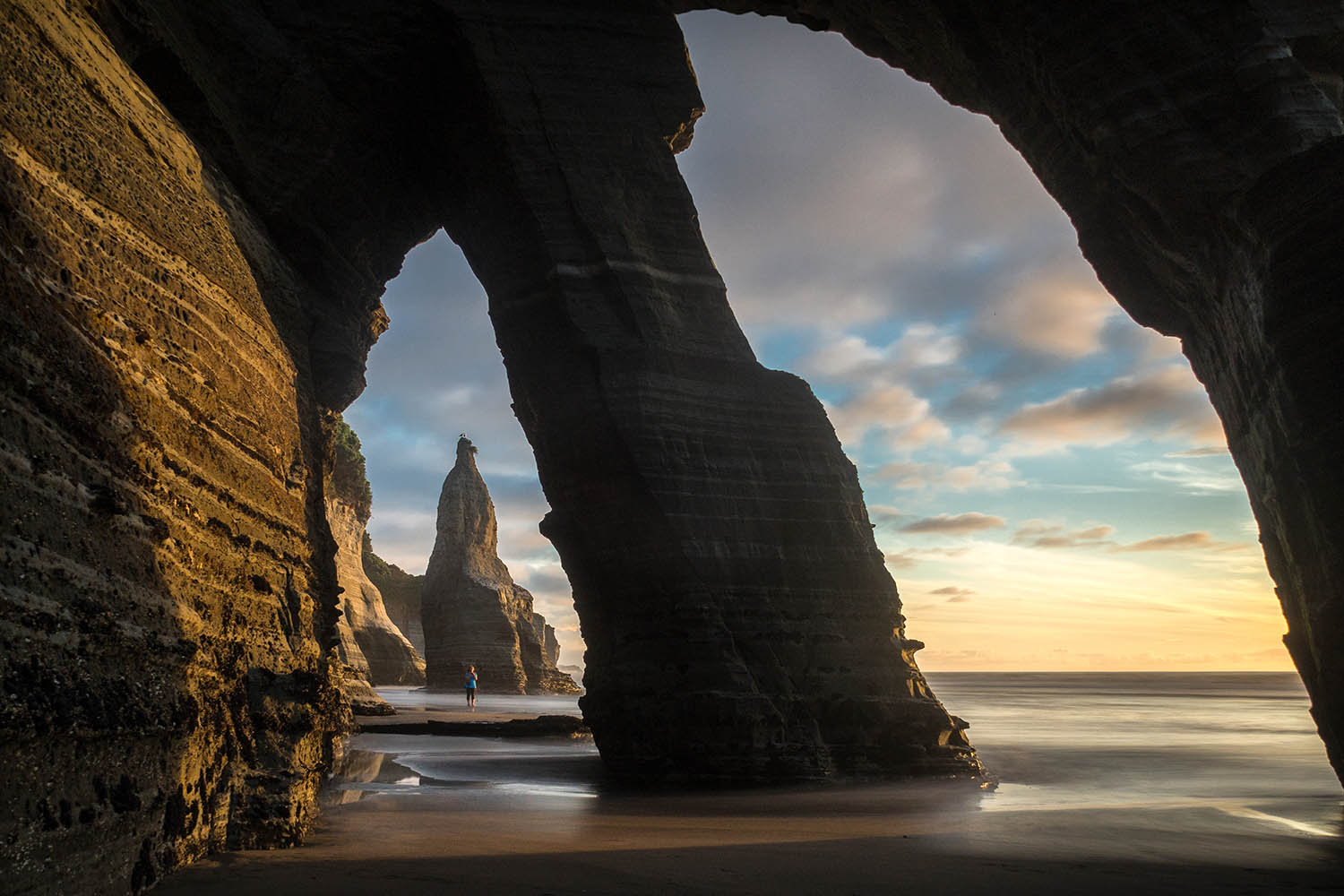While many poets take the natural world as their muse, Nina Mingya Powles refashions our very understanding of it. In her second collection, In the Hollow of the Wave, the poet stitches together reflections from her childhood among New Zealand’s volcanic landscapes with her adult love of quilting: a strangely tectonic vision of textiles gives way to a striking plea to protect our planet.
At first, the collection seems more interested in fabric than any form of terra firma. The book drifts delicately between hand-stitched hems in the poem Backstitch, fraying edges in Slipstitch and “chaotic and lovely” quilts in Patchwork, weaving them together with images of textile offcuts and needle and thread. There is a silk-like softness to Mingya Powles’s tone that draws you in, especially in The Harbour, a vivid sequence of dreams featuring a blood moon and bioluminescence. But then a shift – subtle but sure – towards more consequential themes occurs.
Mingya Powles’s imaginative ambition is apparent in A Gown Is a Glacier, Receding, in which the rippling material of this garment appears variously as “a rocky slope”, “a glacier, receding”, “a fissure where molten rock material emerges”, “an edifice that forms around an opening” and “a kelp forest”. Each pleat is “a faultline” or “a form of architecture” on which the poet builds an unusual but clever argument. If the textiles we live in are a kind of habitat, she suggests, and if we take such care to not rip or stain a single pleat, might this level of respect – neatly folding clothes, washing and patching them up – help to remodel our relation to the textures of the natural world?
Mingya Powles invites us to love the land and tread with care, in the knowledge that its texture is the only one we will ever know
Mingya Powles invites us to love the land and tread with care, in the knowledge that its texture is the only one we will ever know
The collection takes its title from a line in To the Lighthouse by Virginia Woolf, and water is at its heart. Mingya Powles – a wild swimmer whose essay collection Small Bodies of Water won the inaugural Nan Shepherd prize for underrepresented nature writers – is mesmerised each time she is “pulled towards the blue”, but she makes it clear that nature poetry cannot always be pretty. A tidal wave of grief is shared for the whales that wash up in The Harbour, on “the beach of soft imported sand, / below the concrete marina, beside the esplanade”, while a river “has swallowed all the city’s sorrows” in Spell of the Red Flowers. “Dear river, what do you remember? How much can you hold?” she asks into haunting silence.
In that poem, the sensation of the “deep / swirling / snakey” currents are conjured tangibly – and tantalisingly – by the speaker as she strolls beside a river. But undercurrents of racism, too, ripple quietly at every turn. A woman who “looked at me, not seeing me” embarrassingly missteps with her warning that “The Chinese are coming”. As the woman’s “shame” bubbles up like some ugly swamp creature – mouth “shrieking that she is not a racist, she is sorry, please forgive me [...] reaching out to touch me but I am backing away” – Mingya Powles, who is of Chinese-Malaysian heritage, deftly captures the absurdity of the scene.
Ultimately, this unapologetically original poet invites us to love the land and tread with care, in the knowledge that its texture is the only one we will ever know. Instead of preaching, she plays with expectation through a delightfully vibrant patchwork of forms.
from ‘The Harbour’
the dream is a blood moon.
the fact is your eyes wide open.
the dream is a pale pink towel she laid on its back.
the fact is the unseasonable warmth of the sea.
the dream is bioluminescence.
the fact is a house overlooking the bay.
the dream is a white door.
the fact is nothing grows in such sandy soil.
the dream is the red aloe.
the fact is breathing.
the dream is wet skin against her hands.
the fact is echolocation.
the dream is an empty harbour is a warning is an evacuation.
the fact is digging.
the dream is slowly drowning.
the fact is letting go.
In the Hollow of the Wave by Nina Mingya Powles is published by Nine Arches Press (£11.99). Order a copy from The Observer Shop for £10.79. Delivery charges may apply
Photography by Getty Images
Newsletters
Choose the newsletters you want to receive
View more
For information about how The Observer protects your data, read our Privacy Policy

